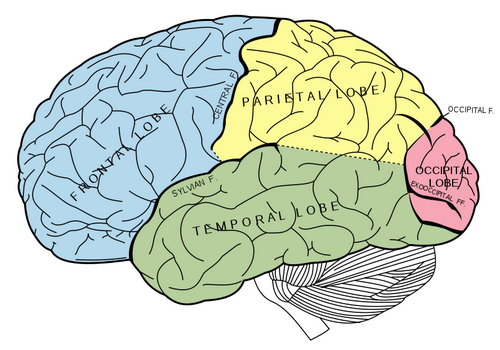
Causes of aphasia
Aphasia is caused due to damage to the language areas of the brain. This damage is most often caused by a stroke wherein blood cannot reach specific areas of the brain. The absence of blood causes the cells in these areas to die and this affects the functioning of the brain. Another common cause of aphasia can be a severe head injury which can damage the language area of the brain. Aphasia is also caused by brain infections, brain tumors, and other specific medical conditions affecting the brain. Almost anyone can get aphasia including children, but it is more common in middle-aged and older people.
- Important notification about information and brand names used in this slideshow!
- Photo courtesy of Mysid by Wikimedia Commons : en.wikipedia.org/wiki/File:Gray728.svg
- www.nidcd.nih.gov/staticresources/health/voice/FactSheetAphasia.pdf
- http://www.medicinenet.com/aphasia/page2.htm#what_causes_aphasia

What is aphasia?
Aphasia is a disorder of the brain which can result in language impairment. It is caused by damage to the parts of the brain that are responsible for helping us in communicating. In most of the people, these areas are located on the left hemisphere of the brain. Aphasia is characterized by a disability in the production and comprehension of speech and affects the person’s ability of reading and writing. Aphasia is typically caused by an injury to the brain and one of the most commonly attributed causes of aphasia is a stroke, especially in older people. Other causes of aphasia include brain tumors, head trauma, and infections.
- Important notification about information and brand names used in this slideshow!
- Photo courtesy of Meg Wills by Flickr : www.flickr.com/photos/whatmegsaid/3153773461/
- www.aphasia.org/Aphasia%20Facts/aphasia_facts.html
- http://inhealth.cnn.com/speech-recovery-and-development-center/10-things-to-know-about-aphasia/
- http://www.brainfacts.org/diseases-disorders/diseases-a-to-z-from-ninds/aphasia/
- http://www.mayoclinic.com/health/aphasia/DS00685/DSECTION=symptoms
- http://www.medicinenet.com/aphasia/article.htm

Signs and symptoms of aphasia
The key signs and symptoms that people suffering from aphasia exhibit are: • Speaking short and incomplete sentences. • Speaking sentences that do not make any sense. • Using unrecognizable, strange words, and finding it difficult to use the appropriate word or phrase. • Inability to comprehend other people’s conversation. • Writing sentences that do not make any sense. The severity of symptoms varies from person to person and depends on the severity of damage to the brain. Some people might easily comprehend what others are saying but might find it difficult to find words to speak. In certain people who have suffered a sudden brain damage either due to an injury or a stroke, the symptoms appear immediately after the damage. However, in cases where the damage is gradual, such as in people suffering from dementia or brain tumor, the symptoms exhibited become acute over a period of time.
- Important notification about information and brand names used in this slideshow!
- Photo courtesy of Vincent Gray Gray by Flickr : www.flickr.com/photos/33550631@N08/3121653655/
- www.nhs.uk/Conditions/Aphasia/Pages/Symptoms.aspx
- http://www.webmd.com/brain/aphasia-causes-symptoms-types-treatments?page=2
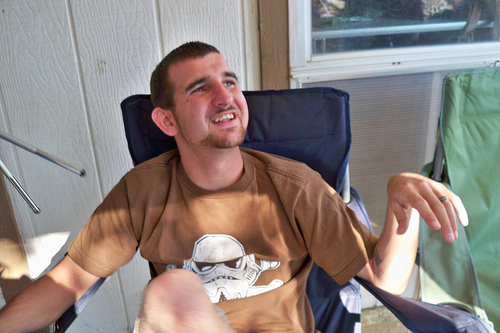
Types of aphasia
There are different types of aphasia depending upon the severity of symptoms exhibited and the specific areas of damage inflicted on the language areas of the brain. • Nonfluent Aphasia: Nonfluent aphasia, also known as Broca’s aphasia is caused due to damage to the frontal lobe of the brain. People suffering from Broca’s aphasia speak short sentences and face a lot of difficulty in getting words out. They tend to leave out words. People suffering from Broca’s aphasia can comprehend what others are saying to some extent. • Fluent Aphasia: Fluent Aphasia, commonly known as Wernicke aphasia is caused due to a damage to the temporal lobe or the left side of the brain. People suffering from fluent aphasia speak long, often meaningless, sentences and tend to include unnecessary words. They may even find it difficult to comprehend written words and what others are saying. • Global Aphasia: People exhibiting signs of both fluent and nonfluent aphasia suffer from global aphasia. People suffering from global aphasia face difficulty with all aspects of communication.
- Important notification about information and brand names used in this slideshow!
- Photo courtesy of sara by Flickr : www.flickr.com/photos/gunners-view/3951836279/
- www.nhs.uk/Conditions/Aphasia/Pages/Symptoms.aspx
- http://www.mayoclinic.com/health/aphasia/DS00685/DSECTION=symptoms

Global aphasia is the most severe type
The most severe type of aphasia is known as global aphasia. The symptoms exhibited by people suffering from global aphasia are a combination of severe Broca’s aphasia and Wernicke’s aphasia. All aspects of communication including spoken and written language, and comprehension and expression are severely impacted in this type of aphasia. Some additional symptoms of global aphasia include: • A paralysis in the right side of the body • A loss of vision • Extreme difficulty in pronouncing certain words due to difficulty in controlling tongue, mouth, and the voice box. • A disability in controlling the voluntary movement of the limbs.
- Important notification about information and brand names used in this slideshow!
- Photo courtesy of Jennifer Moo by Flickr : www.flickr.com/photos/cutiemoo/3111207407/
- www.nhs.uk/Conditions/Aphasia/Pages/Symptoms.aspx
- https://www.aphasia.org/Aphasia%20Facts/aphasia_facts.html

Disorders that may be confused with aphasia
There are certain disorders related to communication which might accompany aphasia or might even be confused with aphasia. Some of these disorders that might be confused with aphasia are listed below: • Apraxia: Apraxia is a speech disorder characterized by a difficulty in speaking correctly and consistently. It is not caused due to a paralysis or weakness of the speech muscles but is instead a developmental aberration. • Dysarthria: Dysarthria is a disorder in which people find it difficult to speak due to problems with the muscles that help us in talking. It might be caused by a disorder in the brain, nerve, or muscles which make it difficult for the person to control the muscular movement of the mouth, tongue, or vocal cords. • Dementia: Dementia refers to the group of symptoms that are caused by disorders affecting the brain. People suffering from dementia face difficulty in performing their day-to-day activities and language impairment is also a form of dementia.

How it's been treated?
In certain cases, people can recover from aphasia on their own without any intervention. This recovery typically happens when a person suffers a transient ischemic attack wherein blood flow to the brain gets temporarily interrupted but gets restored. In such cases, language abilities usually return within a few hours or days. In other cases, the language recovery might only be partial. A speech language therapy is often found to be quite helpful. The speech and language therapy typically aims to help a person best use his/her remaining ability. It also aims to restore as much communication skills as possible and also works towards developing alternate ways of communication.
- Important notification about information and brand names used in this slideshow!
- Photo courtesy of Irena Safarova by Flickr : www.flickr.com/photos/irena-safarova/5758537363/
- www.nhs.uk/Conditions/Aphasia/Pages/Treatment.aspx
- https://www.nidcd.nih.gov/staticresources/health/voice/FactSheetAphasia.pdf
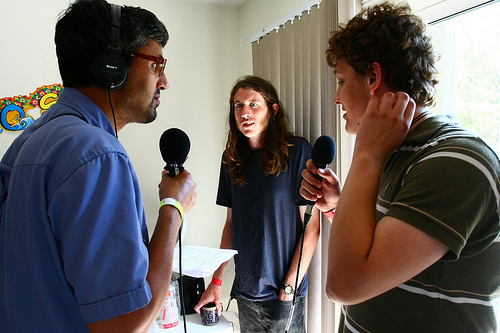
Coping and support
To cope with aphasia, it is best advised that you carry a card explaining your condition and what it means. You must also carry important contact numbers and details with you at all times. A pencil and a small pad of paper will also come in handy. You must try using gestures, drawings, photos, and diagrams to explain yourself. If you have a family member who is suffering from aphasia, you must speak slowly and use small sentences while communicating with the person. Be patient while listening to the person and encourage communication at all times. There are a lot of support groups and stroke clubs that can prove to be quite helpful.
- Important notification about information and brand names used in this slideshow!
- Photo courtesy of Martin Cathrae by Flickr : www.flickr.com/photos/suckamc/3788359765/
- www.nidcd.nih.gov/staticresources/health/voice/FactSheetAphasia.pdf
- http://www.mayoclinic.com/health/aphasia/DS00685/DSECTION=coping-and-support
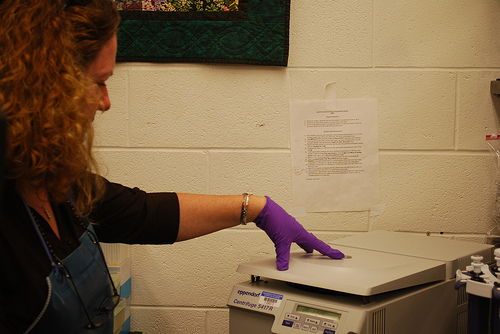
Current research for aphasia
Numerous research studies are going on to understand the problems that can cause the symptoms of aphasia. The research studies are trying to unravel the reason why an injury to specific parts of the brain can lead to speech and language impairment. Scientists are trying to isolate the universal and language-specific symptoms of aphasia. They are trying to find out whether people suffering from aphasia know their language and have difficulty in accessing that language. The efficacy of drug therapy is also being investigated by scientists for treating aphasia. Researchers are also exploring the use of the combination of drug and speech therapy for treating aphasia.

Prognosis
Aphasia is typically first recognized by a neurologist who performs specific tests to understand the severity of the disorder. These tests involve following certain commands, answering questions, carrying on a conversation, and naming objects. The doctor might also advise an imaging test such as a CT scan or an MRI. Depending on the results of these tests, the doctor tries to understand the nature and severity of the damage done to the brain. In cases where the brain damage is mild, the patient is advised a speech and language therapy. Certain drugs might also be advised for improving the blood flow to the brain.


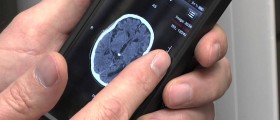






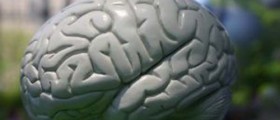
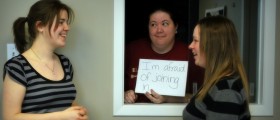
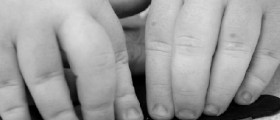





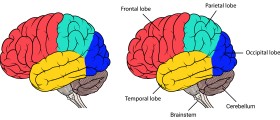




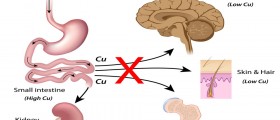
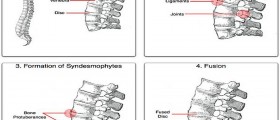



Your thoughts on this
Loading...